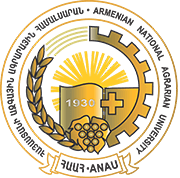
Learning Outcomes
Upon successful completion of the module, learners will be able to:
Language proficiency as a learning outcome. By the end of the course, participants should be ready to use (read, listen, write, and speak) academic English to be able to use it in their research and teaching activities. Special attention should be paid to field-oriented vocabulary/terminology acquisition.
Disciplinary competence as a learning outcome. This is important so that participants can develop their knowledge in the Discipline they learn/teach, e.g. Precision agriculture.
Development of soft skills as a learning outcome. This is done by developing the communication, problem-solving, and idea-generating skills of the students.
Module Organisers: Armenian National Agrarian University (ANAU)
Name of Trainer(s): Liana Vardanyan
Target Group: ANAU and other HEI academic staff and prospective staff
Participant Requirements: B1+ level of English proficiency
Module Aims and Overview:
The EMI (English as a Medium of Instruction) ESP (English for Specific Purposes) pathway program is designed to help non-native speakers of English improve their language proficiency in their specific academic or professional fields. The module aims to equip students with the language skills and knowledge necessary to succeed in academic or professional contexts where English is the primary language of communication. The program aims to help students develop the language skills needed for academic research, writing, presenting, and participating in academic and professional settings.
1. Develop the language skills necessary for success in academic or professional contexts where English is the primary language of communication.
2. Enhance the participants’ knowledge of specific academic or professional fields and the language and concepts used within those fields.
3. Develop soft skills, so that participants feel confident in making presentations, writing CVs, and presenting themselves, being creative and interactive.
The EMI ESP pathway program is divided into several parts each focusing on a different aspect of English language skills development. Some of the topics covered in the program include academic writing, research skills, oral communication, critical thinking, and presentation skills.
The program is typically designed for non-native speakers of English who are seeking to improve their language proficiency in their specific academic or professional fields. The program is designed to be highly interactive, with participants engaging in discussions, debates, and collaborative projects to help them develop their language skills in a practical and relevant way.
The program also includes soft skills training, which involves developing interpersonal skills, such as effective communication, leadership, teamwork, time management, and problem-solving.
Key language skills package includes developing reading, writing, speaking, and listening skills. These skills are fundamental to effective communication, and the program helps individuals improve these skills in the context of their specific profession or industry.
The English Pathway Program is a comprehensive language training program designed to help individuals improve their language skills and develop the necessary communication and interpersonal skills to succeed in their EMI teaching skills.
For those participants who have weaker language skills, it is highly recommended to supplement their training by attending internal English language support courses.
Module Assessment:
a) Language proficiency assessment 25%: This assessment measures a student’s current level of English proficiency, including their reading, writing, speaking, and listening skills. This assessment is often used to determine the appropriate level of English language instruction for the participant.
b) Progress assessment 25%: This assessment is used to measure a participant’s progress throughout the program. It may involve regular testing, assignments, and instructor feedback to track the participant’s language and communication skills development.
c) Final assessment 50%: This assessment is used to evaluate a participant’s overall performance and mastery of the program’s learning outcomes. It may involve a comprehensive exam, project, or presentation that demonstrates the participant’s proficiency in the EMI teaching of their respective subject.



